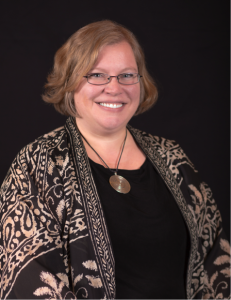One of the most jarring transitions for faculty is often the move from the face-to-face to the online classroom. In that moment, faculty must transfer their wealth of expertise in lecture-based teaching approaches to more facilitative instruction. This is often referred to as moving from the sage on the stage to the guide on the side. This transition can create an identity crisis for the faculty member. In order to have a smooth transition, it is helpful to have some strategies to put into practice. Below are some helpful tips for the seasoned faculty who is new to online:
- You need to be a role model as to what is expected in the online classroom. Your activity sets the standard of what is expected in the course. Students will often emulate what they see demonstrated by the instructor. Your interaction in the class can impact a student’s perception of learning and course satisfaction.
- Online faculty must establish presence in the virtual classroom. This is accomplished by frequent (but not dominating) participation in discussion forums and substantive feedback on assignments. Unlike the traditional classroom where students expect you to be available at a specific time and place, logging on each day goes a long way to creating instructor virtual presence.
- You should strive to develop relationships with students. By individually replying to a student’s class contributions, you begin the process of knowing your students and creating a welcoming environment for engagement.
- Collaborative learning only occurs when students participate regularly. You should encourage your students formally to participate by grading their posting activity. However, your ability to ask intriguing questions, comment to students’ responses appropriately, and ask follow-up questions develops a curiosity that engages students.
- You should foster peer relationships. Your involvement in the class is as guide and facilitator to stimulate learning among students. You need to maintain a careful balance between encouraging participation, adding value, and not dominating the class and stifling interaction or curiosity.
You are not alone in your professional identity crisis. There are many resources to support your growth and development as a new online faculty. The Online Learning Consortium is a repository of a wealth of professional development tools for you! While there are distinct differences to teaching online, rest assured, the skills that made you an effective faculty in the traditional classroom will translate online with practice.
These upcoming OLC workshops offer just the right training for online development:
- New to Online: Putting Your Content Online
- Strategies for Supporting and Advising Students
- Introduction to Collaboration Tools
For more helpful workshops see the full workshop schedule here.
Melanie Shaw has over fifteen years of educational experience ranging from classroom and graduate level teaching to counseling and administration. She is Director of Online Curriculum and Instruction at Clemson University. In addition, Melanie is a dissertation chair, teaches undergraduate and graduate courses online, and develops curriculum for a variety of higher education institutions. She serves as an education consultant and as Executive Editor for the eLearning Institute.
Melanie’s primary research interests include online teaching and learning, organizational leadership, and distance learning instructional practices. She is the author of several books, articles, and chapters including: The Genre of Instructor Feedback in Doctoral Programs: A Corpus Linguistic Analysis; An Evaluation of Student Outcomes by Course Duration in Online Higher Education; Establishing an Online Professional Development Community to Promote Faculty Engagement and Excellence; Motivational Factors of Generation Y Educators: Implications for Teacher Retention; Distance Learning Courses: A Survey of Activities and Assignments; and Online Course Activities: A Survey of Assignment and Assessment Types. In addition to Melanie’s publications, she has presented at the U.S. Distance Learning Association Conference, Online Learning Consortium Conference, the Ubiquitous Learning Conference, International Learning Conference, and the Distance Learning Administration Conference. She is the winner of the Wagner Award for Outstanding Instructional Support and the Online Learning Consortium’s Effective Practice Award.
Melanie received a Ph.D. in Education with a specialization in Curriculum and Teaching from Northcentral University, a master’s degree in Education Administration from Grand Canyon University, and a second master’s degree in School Counseling for the University of West Alabama. She received her bachelor’s degree in Liberal Studies and Music from Excelsior College. She holds teaching certificates in online teaching, elementary education, and guidance counseling. She lives near Colorado Springs with her husband and two daughters.


